
Chapter 2
Evolution of the Industry
As we saw earlier, the proprietary trading space historically belonged to banks and large financial institutions. This implies that it was closed to beginner and retail traders. Banks and large financial institutions often hired traders with years of experience because they had the upper hand in the market. Before the internet burst the proprietary trading space open, information flow was restrictive and almost exclusively available to experienced traders with the right connections. This limited participation in the financial market and kept daily turnover low.

Proprietary trading is also historically a desk job at the bank's (or large financial institution's) trading desk. Prop traders also received low payouts – they were mostly salaried employees whose monthly payout did not correspond with the earnings they generated for the employer.
One of the markets where prop trading has dominated is Foreign Exchange (Forex). While banks monopolized prop trading, the daily turnover of OTC foreign exchange instruments remained low. For example, data from the BIS Triennial Central Bank Survey shows slow growth in daily turnover between 1989 and 2001. This changed in the mid-2000s after boutique prop firms started plugging into the trading prop trading hub.
Breaking the Barriers
The period after the 2007/08 Great Recession was when the prop trading business fully opened to smaller players. The primary reason for the transformation is that banks started scaling back prop trading, especially after the damage they suffered during the financial crisis. Before 2011, banks were required to set aside capital for market risk based on the value at risk (VaR) analysis. However, the regulations were reformed in the Basel 2 regulations, which demanded additional capital requirements. In addition, the Basel 2 regulations argued that the VaR analysis underestimated risk.

The Volcker Rule also forced banks to scale back prop trading. Born out of the carnage of this Great Recession, the Volcker Rule is a US federal regulation prohibiting banks from conducting certain investment activities as principal. Further, the law limits US banks' relationship with private equity and hedge funds. The primary objective of the Volcker Rule is to prevent banks from taking on risks that could destabilize the US and global economy, such as the speculative investments that fanned the 2007/08 financial crisis.
The Impact of Regulation
With Basel 2 in Europe and the Volcker Rule in the US in place, large banks' activity in the prop trading space has significantly reduced. Nevertheless, the daily turnover in global foreign exchange and other markets (like CFDs on securities, crypto, and other derivatives) continued to grow. The main drivers of the growth were upcoming prop firms, some established during the financial crisis, such as Topstep (est. 2010) and SurgeTrader (est. 2008), and many others founded on the heels of the exiting banks, including FTMO (est. 2014), Audacity Capital (est. 2012), etc. The space continues to receive new entrants, with many prop firms established in the last two years, including FX2 Funding, The Funded Trader, MyForexFunds, LuxTradingFirm, The5ers, and so on.
Prop trading became fashionable because of the efforts of a few firms, including FTMO. Founded in 2014 in the Czech Republic, the prop firm lowered the bar for proprietary traders to participate in the space. It introduced remote access to a trading account, funded accounts with over $200,000, and offered a profit-sharing model of up to 90%. More prop firms followed FTMO's lead, and the heated competition lowered fees for traders while enabling easier evaluations and higher profit splits.
You have completed chapter 2 of 10. Please answer the question below to continue to the next chapter.
I prefer to continue without answering

Ready to get funded?
Check out FX2 Funding's selection of the industry's simplest, most straightforward funded account programs.
Get Funded